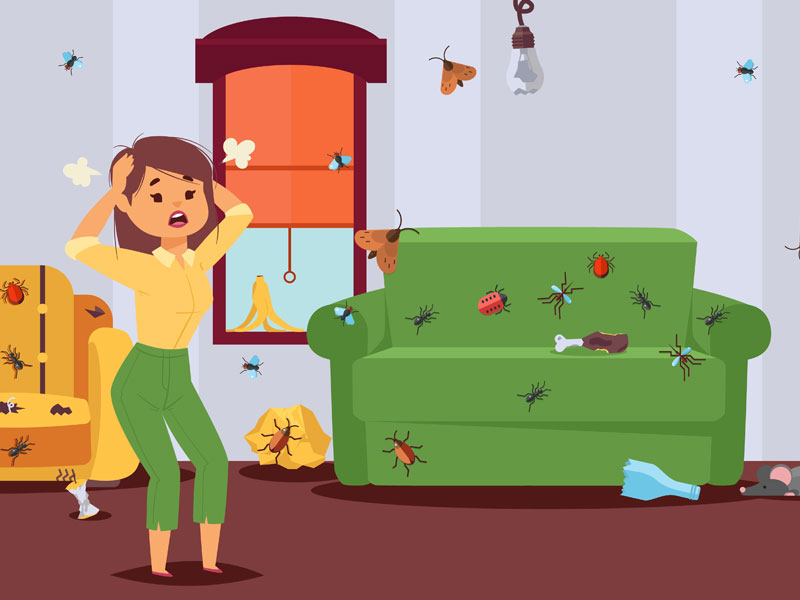Pest Prevention
| Read time: 2 min

To help keep one bug from becoming a bigger problem, you must think like a bug: How are they entering your home? What is attracting them?
Is really important to remember to do regular inspections and ensure that, not only your home is in good shape, but checking the items you bring inside from the outdoors (eg. firewood or boxes) that may harbour bugs that can multiply inside.
A seasonal approach can also be helpful. For example, if you frequently see ants crawling around your home in the springtime, be sure to clean your pantry and kitchen as part of your spring-cleaning routine.
The top 5 things you should do to prevent pests in your home include:
- Remove any sources of food, water, or shelter.
- Store items in safe and enclosed containers.
- Dispose of garbage regularly with a tightly closed lid.
- Reduce clutter or areas where pests can hide.
- Seal and close off any cracks or holes to eliminate outside entry.
Pest Control Methods
If you’ve identified a pest intrusion, it’s time to take immediate action. Pest control methods can fall into two categories: biological or chemical.
Biological
One of the biggest advantages of biological or natural methods is that they don’t involve the use of toxic chemicals. As a result, this method doesn’t harm humans or the environment. In addition, over time, pests don’t become resistant to the control solution. However, most biological methods are only feasible for small pest invasions like insects or plants, and they typically take some time to work.
Chemical
In comparison to biological or natural methods chemicals produce faster, if not, instant results upon application. Despite their many advantages, these toxins can pose health and environment threats upon exposure, but most modern chemical’s effects are only temporary.
With an active approach and the right products, you can ensure pests don’t get in the way. Routine monitoring and a quick response can go a long way in preventing and controlling pests.
If you have questions or concerns about pest control, please contact your property manager.
by Tara-Lynn Strickland, Property Management Assistant
